The Ultimate Guide to SEO for New Websites: From Launch to First Page
seo for new websites: You did it. You pushed the button, deployed the code, and your new website is live. It’s your corner of the internet, ready for th — learn
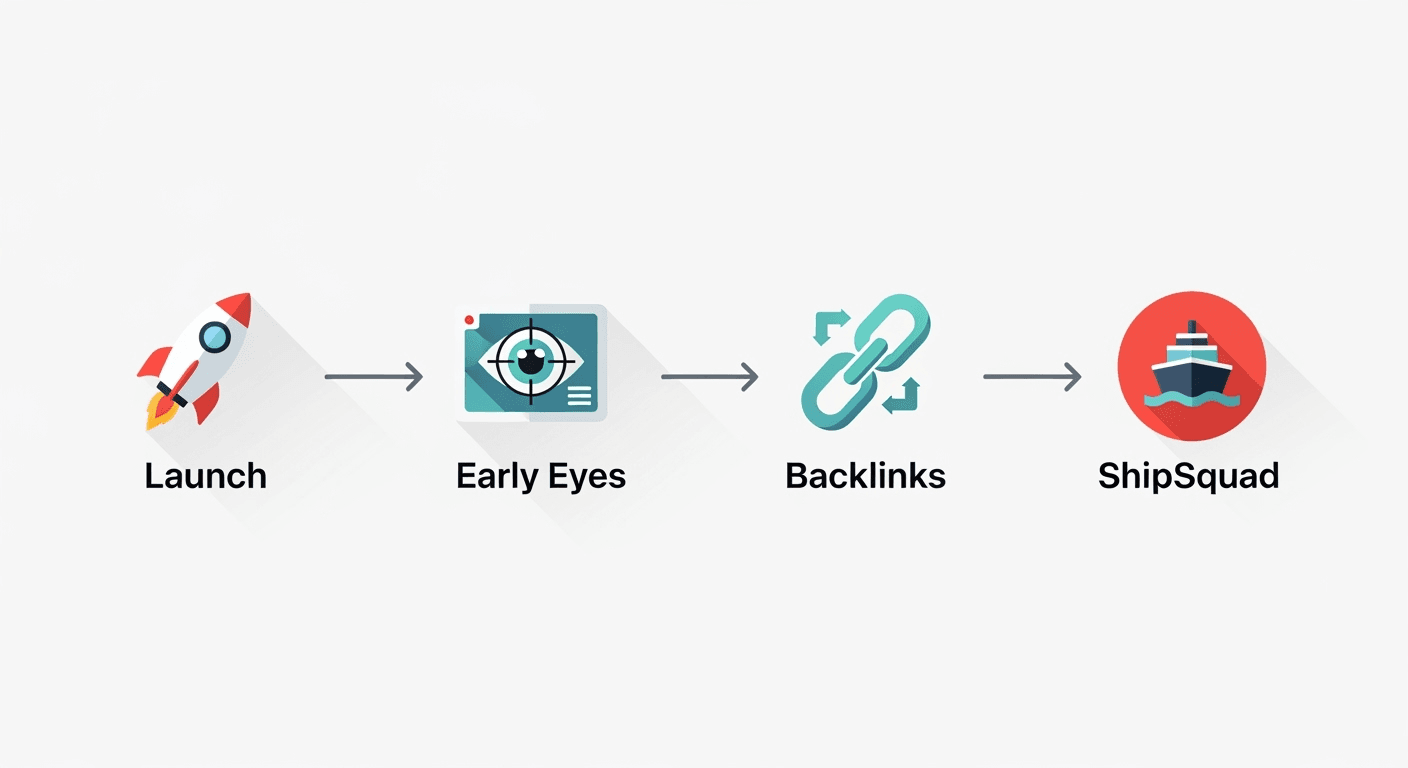
You did it. You pushed the button, deployed the code, and your new website is live. It’s your corner of the internet, ready for the world. But now you’re hearing crickets. That initial rush of excitement is met with the quiet reality of an empty analytics dashboard. Where is everyone?
This is the moment every founder, builder, and creator faces. The truth is, just building it isn't enough. If you want to attract visitors without paying for every single click, you need a solid plan for SEO for new websites. SEO, or Search Engine Optimization, is how you signal to Google that your site is a valuable answer to someone's question.
Getting started with SEO for new websites can feel like shouting into the void. You’re competing against established sites with years of authority. But here’s the good news: it’s not impossible. It just requires a different strategy. You don’t need a massive budget or a team of experts to make a dent. You need a smart, foundational approach that builds momentum over time.
This guide will walk you through the exact steps to get your new site off the ground. We’ll cover the essentials, from technical setup to content and getting those all-important first links. Let's turn those crickets into clicks.
Table of Contents
- Why SEO for New Websites is a Marathon, Not a Sprint
- The Pre-Launch SEO Checklist: Setting Your Foundation
- Keyword Research: Finding Your First Opportunities
- On-Page SEO Essentials: Speaking Google's Language
- Technical SEO Basics for Beginners
- Content Strategy: Your Engine for SEO Growth
- Creating "Minimum Viable Content"
- The Power of "Problem-Aware" Content
- The Link Building Dilemma: How New Websites Can Earn Authority
- The Challenge of Getting Your First Backlinks
- Smart Link Building Strategies for Day One
- The Untapped Goldmine: Launch Platforms for Backlinks
- A Real-World Example: Launching an Indie Tool with SEO in Mind
- Measuring What Matters: Essential SEO Metrics for New Sites
- Common Mistakes to Avoid with SEO for New Websites
- Conclusion: Your Journey Starts Now
- Recommended Videos
- Frequently Asked Questions (FAQs)

Why SEO for New Websites is a Marathon, Not a Sprint
Get our free checklist: Improve your group's communication in 10 minutes.
Download now to reduce friction and talk more naturally.
Think of it like making a new friend. You don't trust them with your deepest secrets on day one. Trust is built over time through consistent, reliable actions. It's the same with Google. This initial period is often called the "Google Sandbox," an informal term for the idea that new sites are temporarily limited in their ranking ability until they prove their legitimacy.
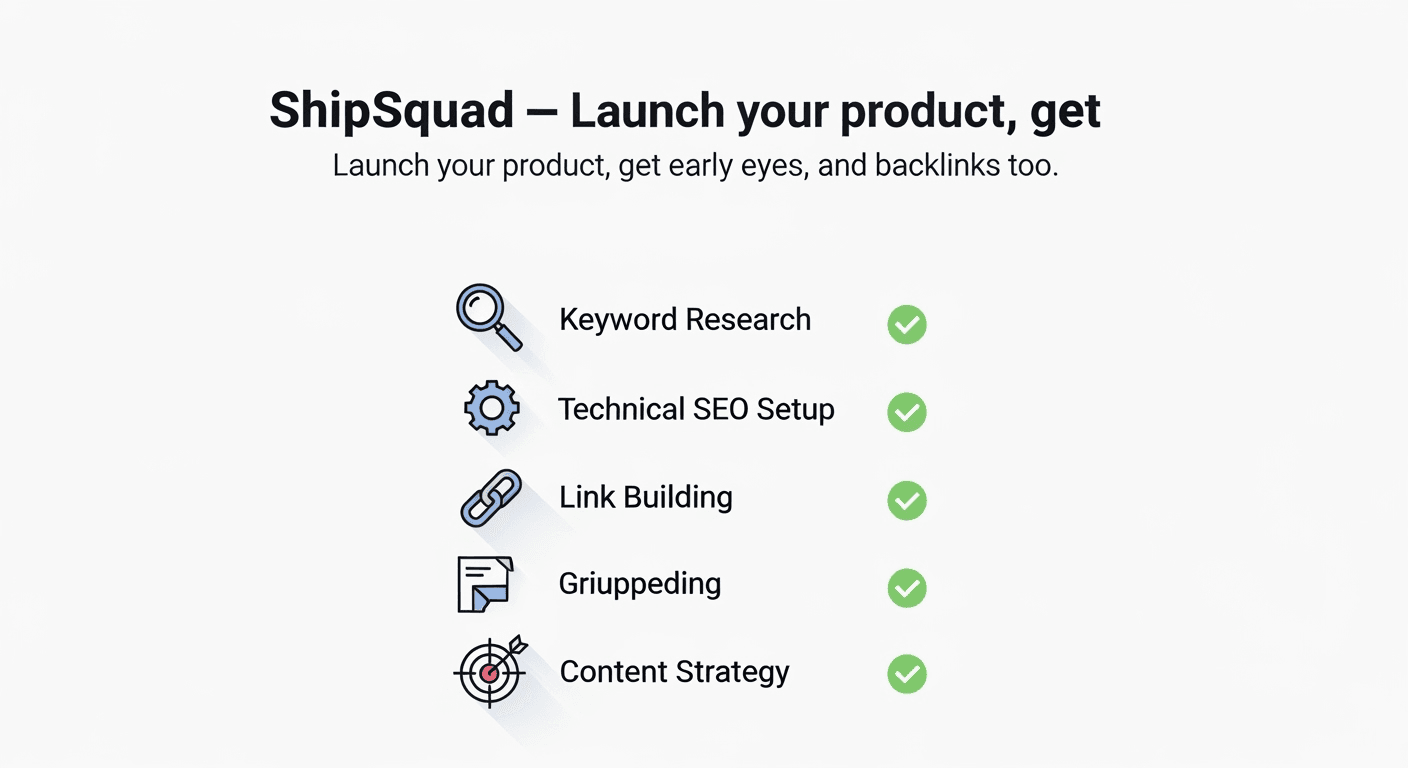
Your goal in the first 3-6 months isn't to dominate the search results. It's to build a solid foundation. Every action you take now is an investment that will pay dividends later. This is the core philosophy behind effective SEO for new websites.
The Pre-Launch SEO Checklist: Setting Your Foundation
Getting the basics right before you even think about advanced tactics is crucial. This is the groundwork that everything else is built upon.
Keyword Research: Finding Your First Opportunities
You can't win a race if you don't know where the finish line is. Keywords are the language of your potential customers. Your job is to find the phrases they're typing into Google and create content that answers their needs.
For a new website, you want to find long-tail keywords. These are longer, more specific phrases (e.g., "how to track expenses for a freelance designer" instead of just "expense tracker"). They have lower search volume, but they also have much lower competition and higher intent. Someone searching for that phrase knows exactly what they want.
How to find them:
- Brainstorm: Think like your customer. What problems does your product solve? What questions would they ask?
- Use Free Tools: Google Keyword Planner (https://ads.google.com/home/tools/keyword-planner/) is a great starting point. Also, just type your ideas into Google and look at the "People also ask" and "Related searches" sections. That's a goldmine.
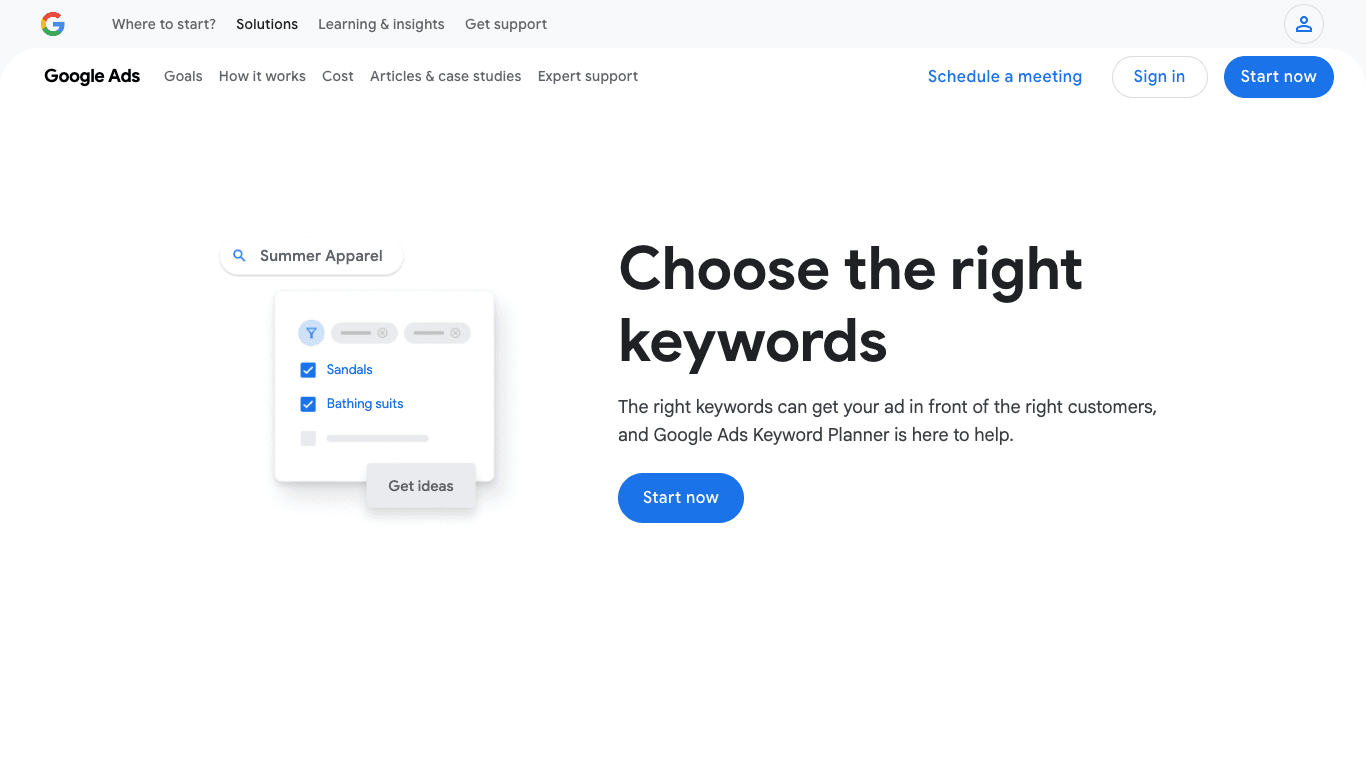
- Think About Questions: AnswerThePublic (https://answerthepublic.com) is fantastic for turning a single keyword into a web of questions people are actually asking.
What would I tell a friend? Don't obsess over finding the "perfect" keyword. Find a handful of relevant, low-competition phrases and start there. Your first keywords are about getting your foot in the door.
On-Page SEO Essentials: Speaking Google's Language
On-page SEO is about structuring your content so search engines can easily understand what it's about. It’s the simplest part of SEO for new websites, and you have 100% control over it.
Focus on these four things for every page and blog post:
- Title Tag: This is the blue link that shows up in Google search results. It should be under 60 characters and include your main keyword.
- Meta Description: The short text snippet under the title tag. It doesn't directly impact rankings, but a good one convinces people to click. Make it compelling.
- Header Tags: Use one H1 tag per page for your main title (and include your keyword). Use H2s and H3s to break up your content into logical sections.
- URL: Keep your URLs short, clean, and descriptive.
is much better thanyour-site.com/blog/seo-for-new-websites
.your-site.com/p?123

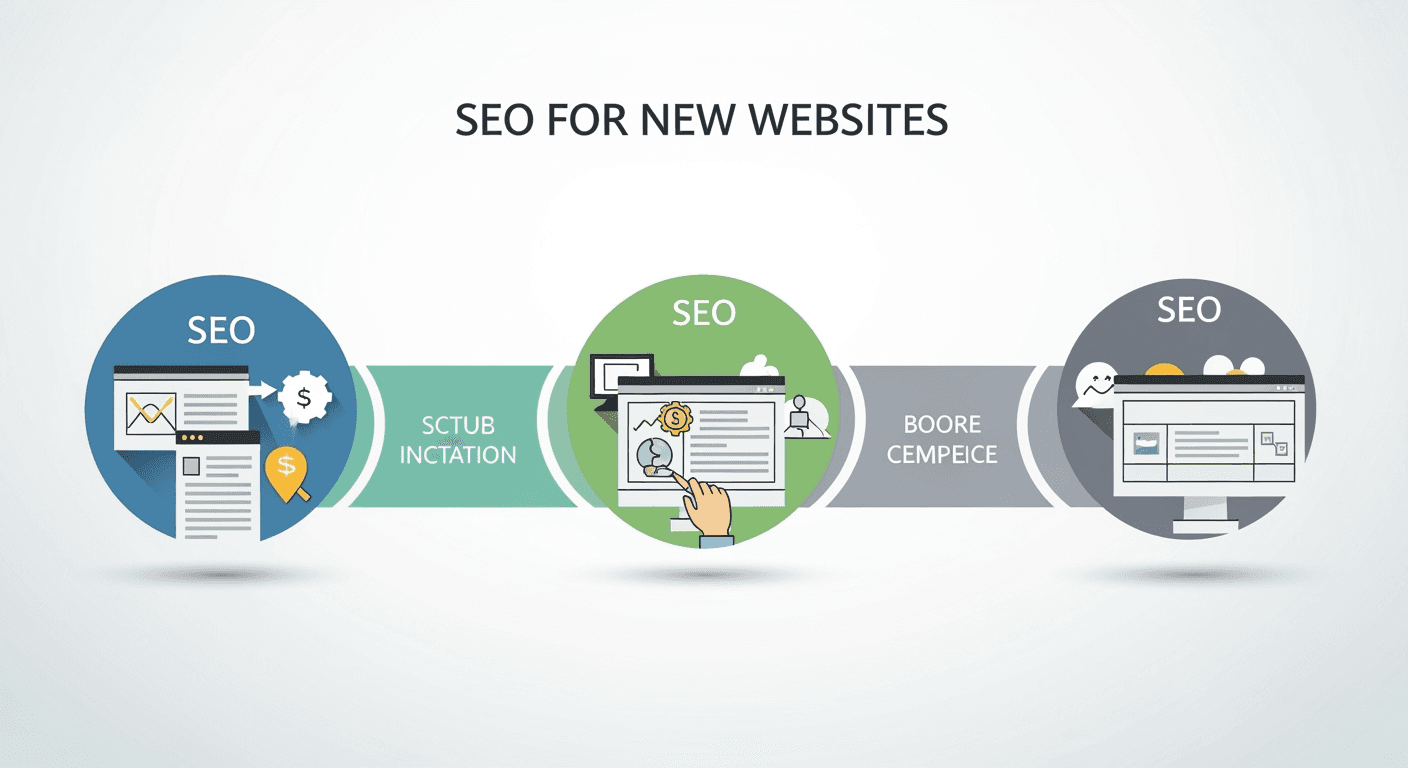
- Title: Anatomy of a Perfectly Optimized Page
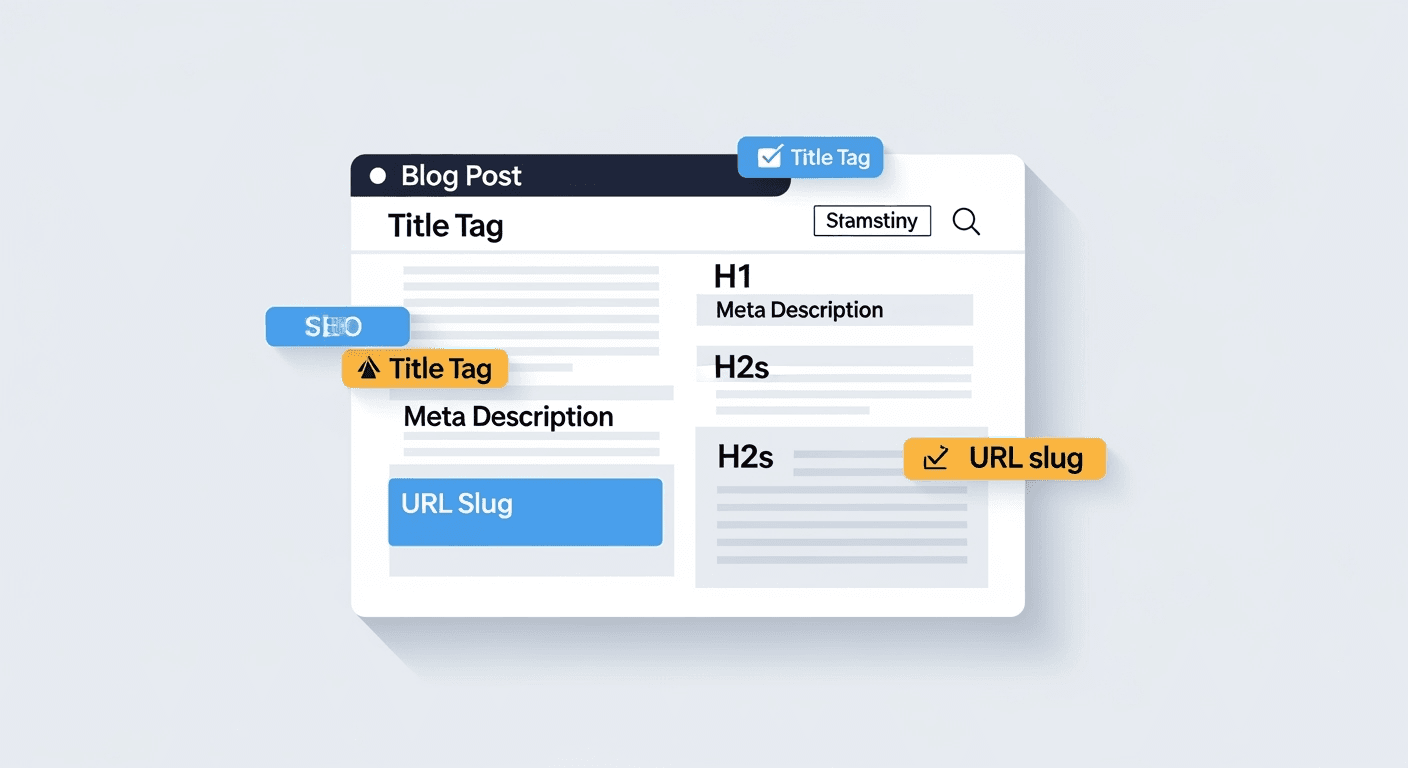
Technical SEO Basics for Beginners
Don't let the word "technical" scare you. For a new site, you only need to check a few boxes.
- Create a Sitemap: A sitemap is a file that lists all the pages on your website. It helps Google find and index your content faster. Most website builders and SEO plugins (like Yoast for WordPress) will generate one for you automatically.
- Check Your Site Speed: A slow website is a killer. Data shows that 40% of people abandon a website that takes more than 3 seconds to load. Use Google's PageSpeed Insights (https://pagespeed.web.dev/) to check your speed and get recommendations for improvement.
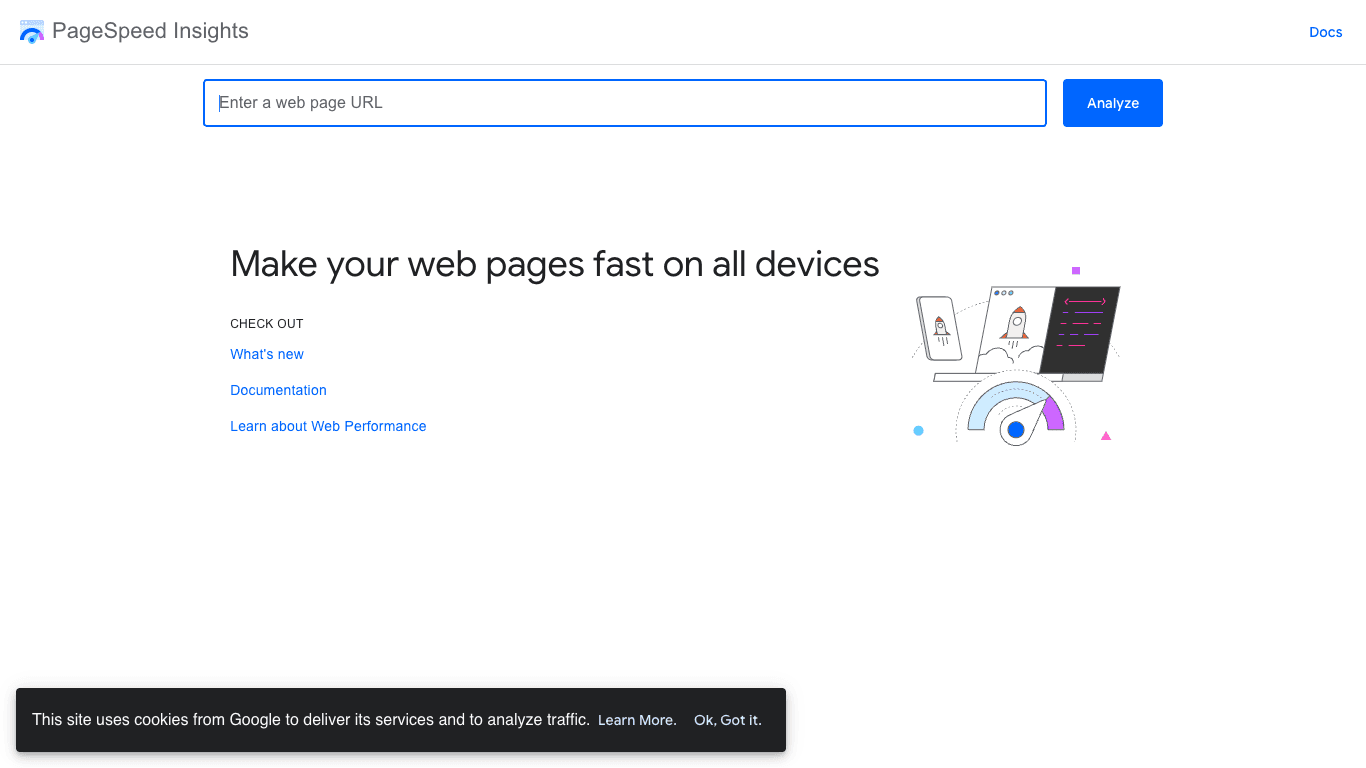
Think of this as building a house. You wouldn't paint the walls before the foundation is poured and the frame is up. This is your digital foundation.
Content Strategy: Your Engine for SEO Growth
Content is how you earn rankings. It's the "product" you're offering to search engines and users. But for a new website, you can't just churn out content and hope for the best. You need a strategy.
Creating "Minimum Viable Content"
You don't need 50 blog posts to get started. You need 3-5 pieces of "cornerstone content." These are incredibly detailed, valuable articles that target your most important keywords. They should be the best possible answer on the internet for that topic.
Instead of writing a short 500-word post, go deep. Create a 2,500-word ultimate guide. This approach shows Google you're a serious authority on the topic, even if you're new. Quality will always beat quantity in the early days of SEO for new websites.
The Power of "Problem-Aware" Content
When you're launching a new product, your content should focus on the problem, not just your solution. Your early adopters are likely "problem-aware"—they know they have a pain point but might not know a solution like yours exists.
Create content that addresses their struggles.
- If you have a budgeting app, write about "the stress of managing freelance finances."
- If you have a project management tool, write about "why team projects always go over deadline."
This builds trust and attracts the right audience. It also gives you a natural way to introduce your product as the logical next step. This is crucial for getting early feedback and validation—knowing what your first users actually need.
Mini Case Study #1: The Niche SaaS Startup
- The Setup: A small, bootstrapped SaaS company launched a new tool for landscape designers. They had zero online presence and no marketing budget.
- The Challenge: The keyword "landscape design software" was dominated by huge, established players. They couldn't compete head-on.
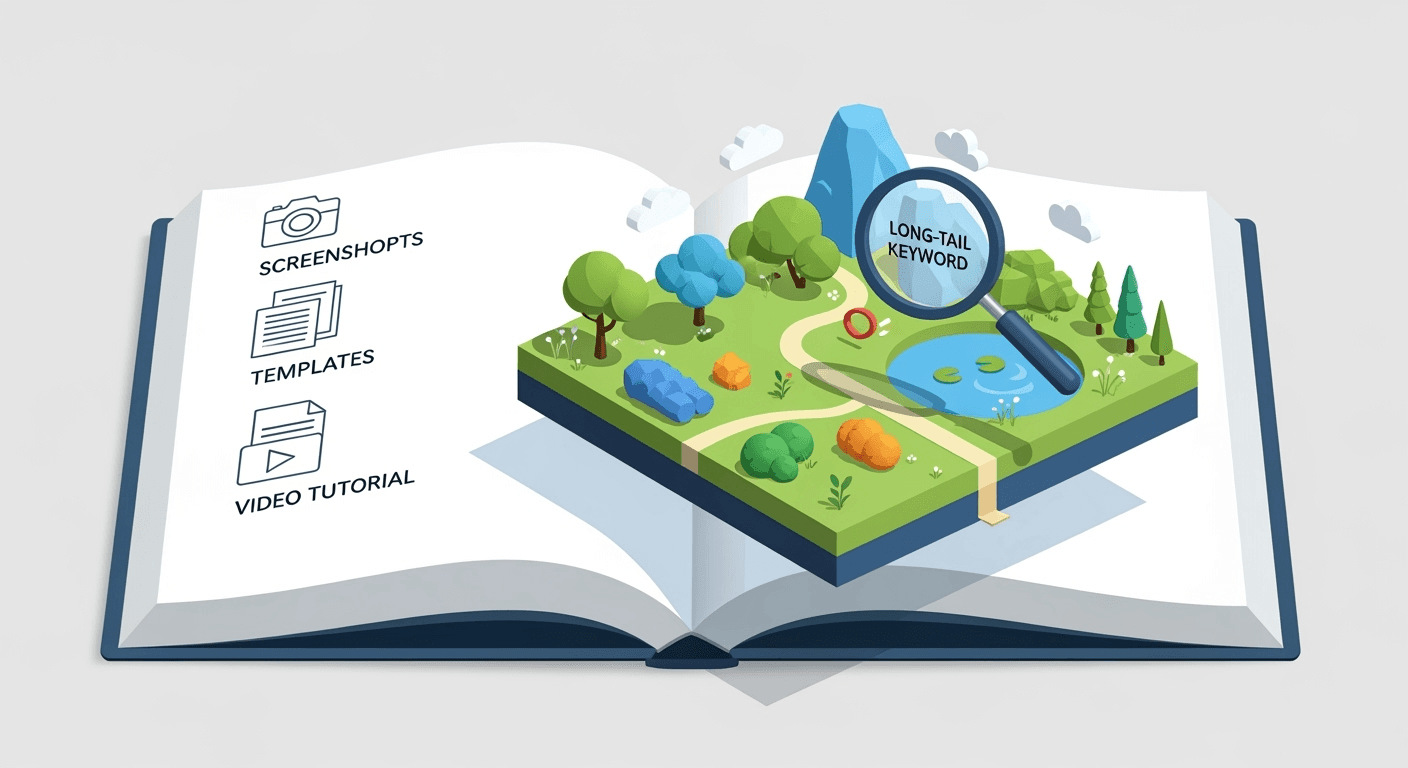
- The Results: Within two months, their guide ranked on the first page of Google for that term. It only brought in about 150 visitors a month, but these were highly qualified visitors. They saw a 10% conversion rate from that single blog post to a free trial sign-up, giving them their first paying customers and validating their product idea. This shows the power of focusing on a niche when starting your SEO for new websites journey.
The Link Building Dilemma: How New Websites Can Earn Authority
Here's the toughest part of SEO for new websites: link building.
Backlinks are links from other websites to yours. In Google's eyes, they are votes of confidence. The more high-quality votes you have, the more authoritative your site becomes. According to industry research, the number of domains linking to a page is one of the most important ranking factors.
The Challenge of Getting Your First Backlinks
But how do you get links when no one knows you exist? It's the classic chicken-and-egg problem. You need links to get traffic, but you need traffic to get noticed and earn links. It’s a frustrating cycle for any new founder. Traditional outreach is tough. Why would a busy blogger link to your brand-new, unknown site?
Smart Link Building Strategies for Day One
You have to be scrappy and creative. Here are a few ways to get your first handful of links:
- Directory Listings: Submit your site to relevant, high-quality industry directories.
- Guest Posting: Find smaller blogs in your niche that accept guest posts. It's a great way to get a link, tap into their audience, and build your own authority.
- HARO (Help a Reporter Out): This is a free service (https://www.helpareporter.com/) that connects journalists with sources. Respond to relevant queries, and if they use your quote, you'll often get a backlink from a major news outlet.
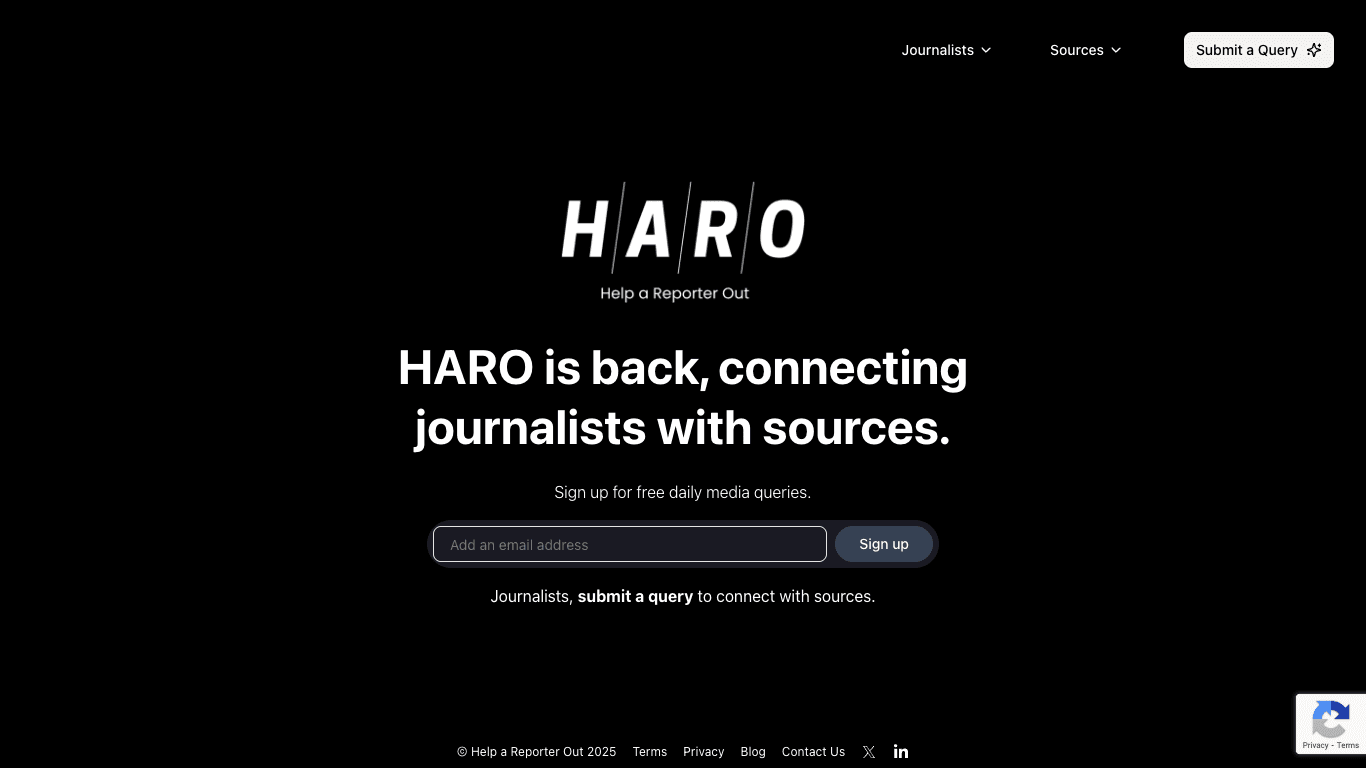
The Untapped Goldmine: Launch Platforms for Backlinks
But what if you could get visibility and backlinks at the same time? This is where product launch platforms come in, but not all are created equal. Many are crowded, charge fees, or don't contribute to your long-term SEO.
This is a huge gap for indie makers and early-stage founders. Imagine a platform designed specifically to help you get discovered by early adopters and earn quality backlinks from the get-go. This is the idea behind a new wave of services. For example, a platform like ShipSquad is built to solve this exact problem. It allows you to launch your product for free, get it in front of a community of tech enthusiasts, and—most importantly—get featured on blogs and newsletters that can provide those critical first backlinks.
It’s about turning your product launch itself into an SEO asset. Instead of just a temporary spike in traffic, you get lasting value that helps your SEO for new websites for months and years to come.

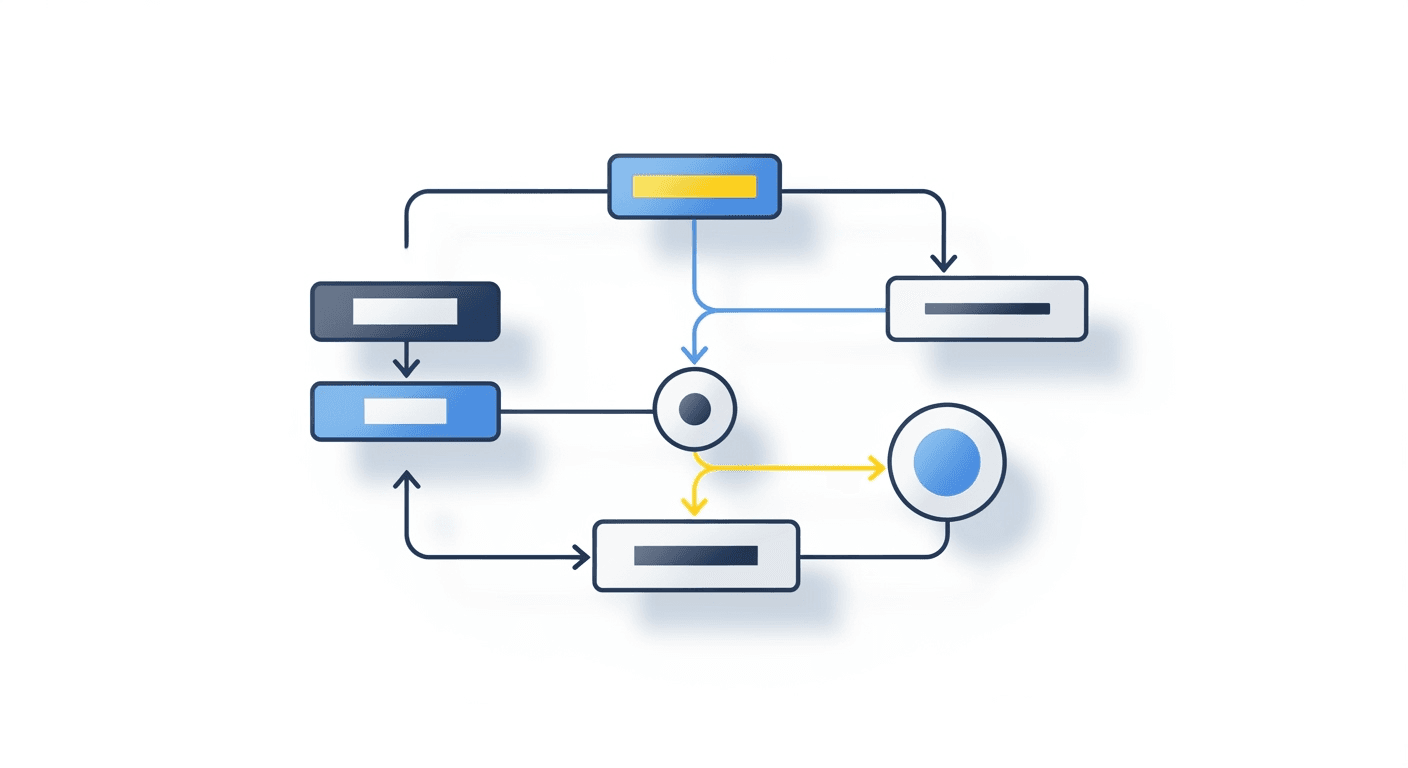
- Title: Two Paths to Your First Backlinks

A Real-World Example: Launching an Indie Tool with SEO in Mind
Let's put it all together.
- The Setup: A solo developer named Maria builds a simple browser extension to help people save and organize code snippets.
- The Challenge: Maria has no social media following, no email list, and no budget. She needs early users to provide feedback and prove her concept.
- The SEO-First Launch Plan:
- Keyword Research: She avoids "code snippet manager" and instead targets "best way to save code snippets from stack overflow."
- On-Page SEO: Her landing page is perfectly optimized for this long-tail keyword. The H1 is "The Best Way to Save Code Snippets from Stack Overflow, Right in Your Browser."
- Content: Before launching, she writes one killer blog post titled "You're Wasting Time Copy-Pasting Code: A Better Workflow."
- The Launch: Instead of just tweeting into the void, she launches her extension on ShipSquad.
- The Results:
- The ShipSquad community upvotes her project, driving her first 200 visitors and 50 installs on day one.
- A tech blogger who discovers her tool on the platform writes a short review, giving her a high-quality backlink.
- Another newsletter for developers features her extension as a "tool of the week," resulting in another valuable link.
- Within ten weeks, the combination of her targeted on-page SEO and these two powerful backlinks helps her landing page start ranking on page two for her target keyword. She's now getting a steady trickle of organic traffic every single day.
This is the power of integrating your launch strategy with your SEO for new websites from the very beginning.
Measuring What Matters: Essential SEO Metrics for New Sites
Don't get lost in a sea of data. For a new site, only a few metrics really matter. You can find all of these for free in Google Search Console and Google Analytics.
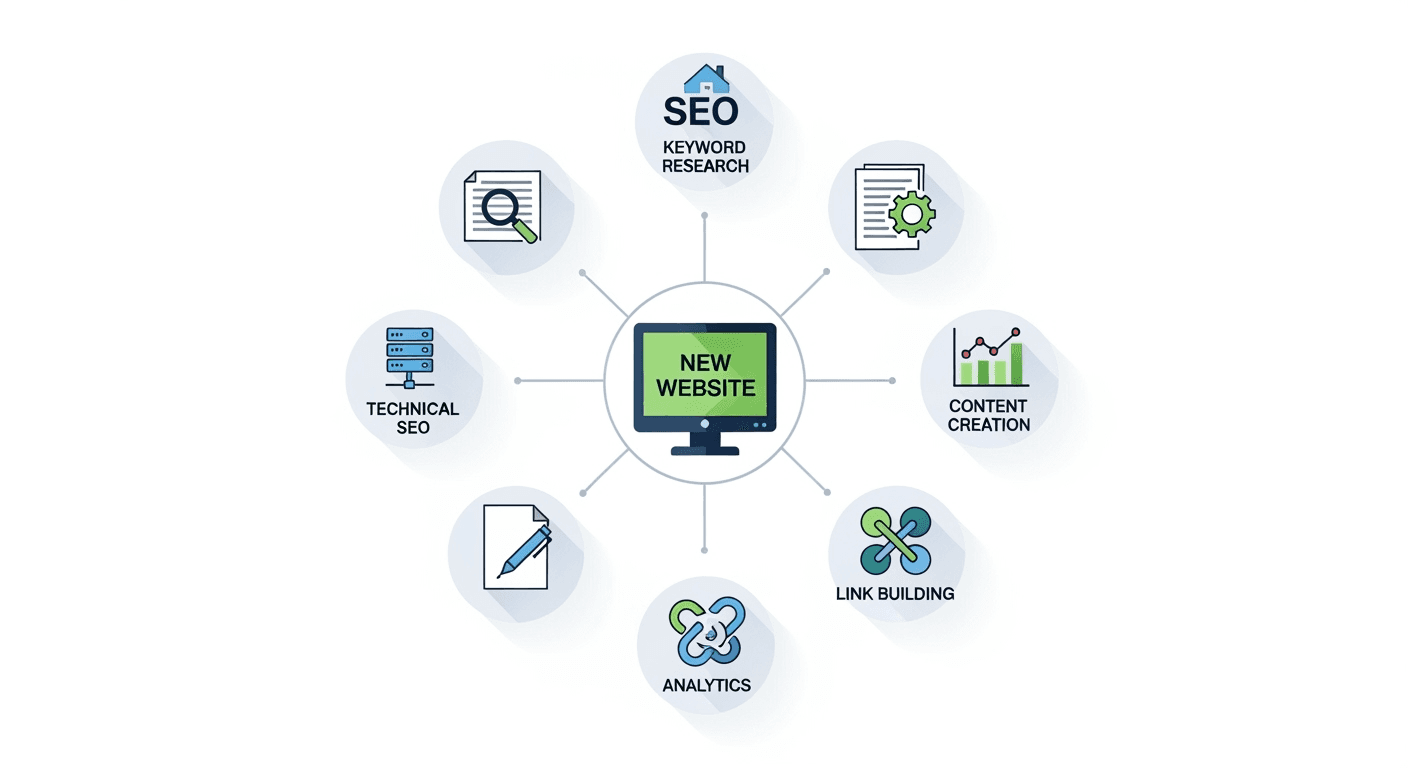
- Title: SEO Metrics: Where to Focus Now vs. Later
Get our free checklist: Improve your group's communication in 10 minutes.
Download now to reduce friction and talk more naturally.
| Metric | Why It Matters for a New Website | Where to Find It |
|---|---|---|
| Impressions | This shows that Google is starting to show your site in search results, even if people aren't clicking yet. It's the first sign of life. | Google Search Console |
| Keyword Rankings | Track your rankings for a small, core set of 5-10 long-tail keywords. Seeing a keyword move from position 90 to 40 is a huge win. | Google Search Console |
| Referring Domains | This is the number of unique websites linking to you. Your goal in the first year is to get this number moving up, even slowly. | Google Search Console |
| Organic Traffic | Don't obsess over volume. Instead, look for a slow but steady upward trend. Going from 0 to 10 visitors a day is a massive success. | Google Analytics |
Common Mistakes to Avoid with SEO for New Websites
It's easy to get discouraged. Often, it's because of a few common (and avoidable) mistakes.
- Expecting Overnight Results: SEO is a long-term game. Be patient and consistent.
- Targeting "Vanity" Keywords: Don't try to rank for "project management software" on day one. You will fail. Go for the long-tail keywords where you can actually compete.
- Ignoring Technical SEO: A slow site or one that Google can't crawl will never rank, no matter how great your content is.
- Publishing Content with No Plan: Every piece of content should have a purpose and target a specific keyword.
- Forgetting to Build Links: Content alone is not enough. You must be proactive about getting those first few backlinks. This is arguably the most critical and challenging part of SEO for new websites.
Conclusion: Your Journey Starts Now
Launching a new website is just the first step. Getting it seen is the real challenge. SEO for new websites isn't about finding secret hacks or gaming the system. It's about building a genuine, authoritative resource, one brick at a time.
Focus on a solid technical foundation, create content that solves real problems, and be smart and scrappy about earning your first backlinks. The journey is long, but the reward—a sustainable stream of free, targeted traffic—is worth it.
And you don't have to do it alone. Don't let your launch be a shot in the dark. Use platforms designed to give you the visibility and the SEO boost you need from day one.
Ready to launch your product, get early eyes, and build your SEO foundation at the same time? Check out how ShipSquad can help you get the traction you need without the noise.
Recommended Videos
- SEO For Beginners: A Basic Search Engine Optimization Tutorial for Higher Google Rankings - A great overview of the fundamentals from Ahrefs.
- How to Get Your First 10 Backlinks - Practical, actionable advice for new websites from Brian Dean.
Frequently Asked Questions (FAQs)
1. How long does SEO take for a new website?
Generally, it takes about 6 to 12 months to start seeing meaningful results from an SEO strategy for a new website. The first 3-6 months are typically about building a foundation, getting indexed, and earning initial trust from Google.
2. What's more important for a new site: on-page or off-page SEO?
For a brand-new site, on-page and technical SEO are the first priorities. You need to build a solid foundation that Google can understand. However, you cannot ignore off-page SEO (link building). As soon as your foundation is set, you should immediately focus on acquiring your first high-quality backlinks, as they are essential for building authority.
3. How many backlinks do I need to start ranking?
There is no magic number. It depends entirely on the competitiveness of your keywords. For a low-competition, long-tail keyword, you might be able to rank with just a handful of quality backlinks. The focus should be on the quality and relevance of the links, not just the quantity.
4. Can I do SEO myself for my new website?
Absolutely. The basics of SEO for new websites are very learnable. By focusing on fundamental keyword research, creating high-quality content, and using smart strategies to get your first links, a solo founder or small team can achieve significant results without hiring an expert.
5. What is the "Google Sandbox" and is it real?
The "Google Sandbox" isn't an official term from Google, but it refers to the common observation that new websites often struggle to rank for competitive terms for the first few months, regardless of the quality of their content. It's best to think of it as a trust-building period where Google is vetting your site's legitimacy.
6. How can I get my new website indexed by Google faster?
The best way is to set up Google Search Console, create an XML sitemap, and submit it directly to Google through the console. Additionally, getting a backlink from an already-indexed website can help Google's crawlers discover your site more quickly.